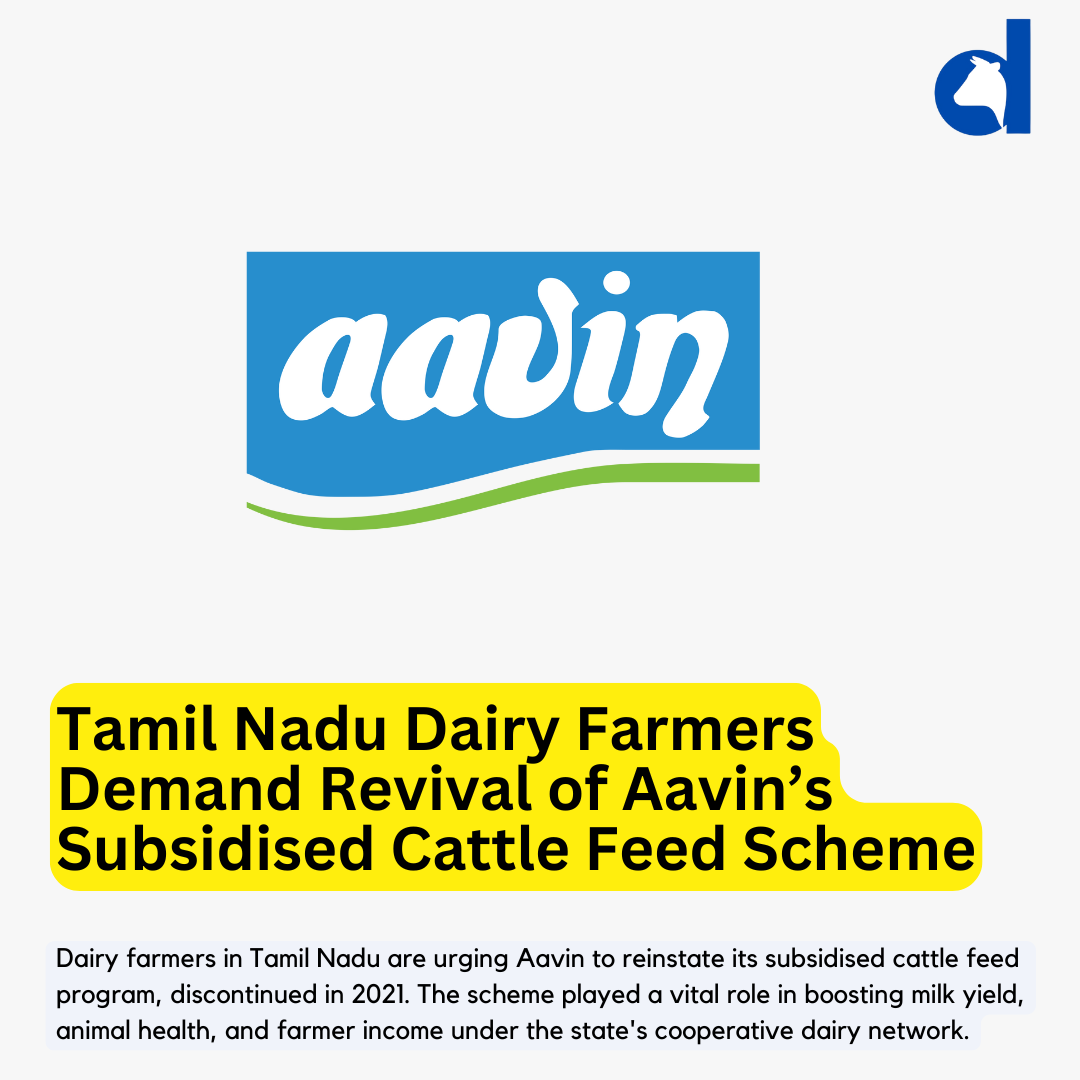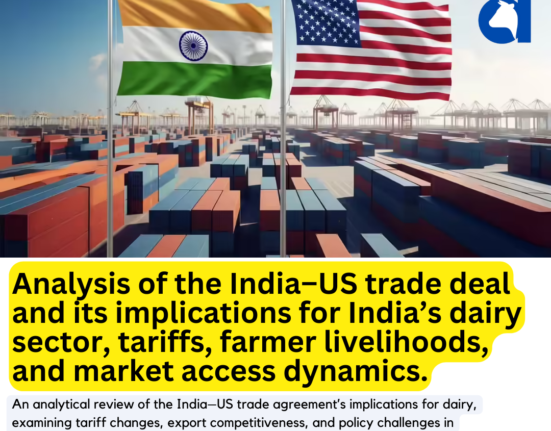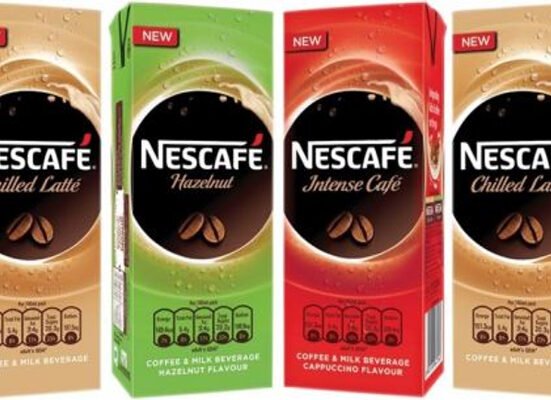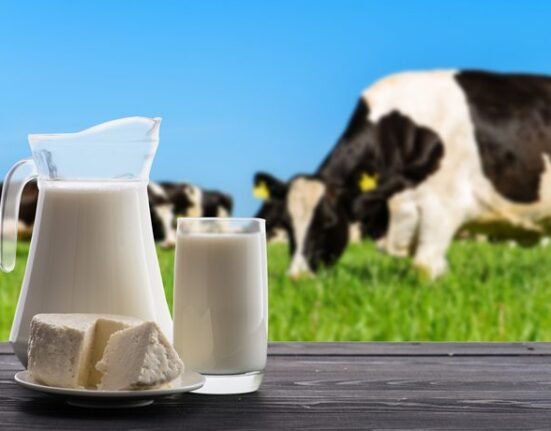Coimbatore — Dairy farmers in Tamil Nadu are urging Aavin, the state-run milk cooperative, to reinstate its once-critical subsidised cattle feed programme that was discontinued in 2021. The demand comes amid rising input costs and concerns over declining fodder availability.
Aavin, officially known as the Tamil Nadu Cooperative Milk Producers’ Federation Limited, had supported thousands of small and marginal dairy farmers through a comprehensive fodder development and subsidy initiative. The scheme was instrumental in enhancing milk production, animal health, and cooperative loyalty across 16 district unions.
The now-defunct programme offered:
- Fodder slips and seeds
- Tree saplings for shade and fodder
- Chaff cutters
- 50 kg bags of complex cattle feed at subsidised rates
- Farmer training on fodder management practices
Dairy producers under the scheme received feed at ₹750 per 50 kg bag, a considerable discount from the regular market price of ₹1,000. Additionally, this initiative was complemented by veterinary services and livestock insurance under the National Livestock Mission, aimed at reducing risk and boosting productivity for rural dairy households.
Farmers’ Plea for Revival
A dairy farmer from Kinathukadavu in Coimbatore district voiced the frustration felt by many:
“The subsidised cattle feed ensured year-round access to quality nutrition, which directly improved milk yield and cattle health. Its withdrawal has burdened farmers with higher costs. We urge the government to restore the scheme to safeguard farmer livelihoods and sustain cooperative engagement.”
Since the programme’s discontinuation, farmers must now purchase feed at non-subsidised rates. A senior official from Aavin acknowledged the issue:
“As per government policy, the subsidy was withdrawn in 2021. However, Aavin continues to supply the same complex feed. To provide some relief, we’ve reduced the feed price by ₹50—bringing it down from ₹1,300 to ₹1,250 per 50 kg bag.”
While the price cut offers marginal savings, dairy stakeholders believe a revival of structured subsidies and fodder support is crucial—especially in the face of fluctuating milk procurement prices and rising input costs.
As the Tamil Nadu dairy industry continues to grow, policy decisions like these will shape the sustainability and resilience of cooperative-led milk production.







